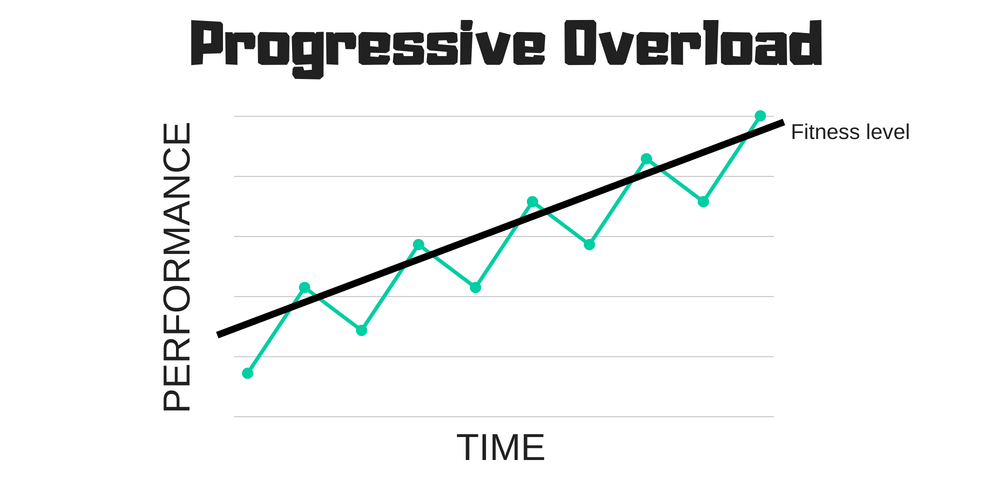
Why Do YOu need to progressively overload?Īs the body adapts to the current resistance training program, the client will notice the same sets and reps are no longer difficult to complete. is characterized by an increase in the cross-sectional area of individual muscle fibers resulting from an increase in myofibril proteins (myofilaments). He has more than 16 years in the health & fitness industry and is currently the owner of 1-2-1 Fitness, LLC.The National Academy of Sports Medicine (2018) defines Hypertrophy as "the enlargement of skeletal muscle fibers in response to being recruited to develop increased levels of tension, as seen in resistance training. He holds a Bachelor of Science Degree in Kinesiology, Post Baccalaureate Studies in Exercise Physiology and a Masters in Business Administration.
#Overload principle professional#
Kisar Dhillon is a professional fitness trainer living in Orange County, California.

They are there for safety concerns and that you maintain correct form and biomechanics when performing any exercise. If you need a spotter to help you lift the weight, make sure they do not do most of the work. You must overload the muscles so that it is challenging to push the weight up, but you must perform the exercise with correct biomechanics.

If you are going to do incline chest bench press and flyes, this same principle can be applied to your muscles. The example that I just explained can be applied to all of the exercises you are going to do.

*A maximum of 60 seconds between sets and no more than that. Set 6 - Light to moderate weight to burn out X 15-20 reps Here is an example of the Overload Principle at work.įlat Chest Press Set 1 - Warm up 12-15 reps with a light weight (tell the muscle what it is going to be doing) If you don't let it rest and grow, your muscle will be fatigued and not rested and you will succumb to injury or muscular imbalances. You need to work the muscle with the various exercises, but you must let it rest so it can grow, recuperate and be ready for the next round of loaded resistance you will place on it. If you decide to work the same body part over and over again expecting that muscle to be torn down and repaired, you have another thing coming. By doing this type of activity, the muscle will be exposed to microscopic tears in the tissue and it will need to repair itself, create scar tissue and react by growing a small amount of muscle mass as the reaction to this type of training. This principle tells you that in order for your muscle to gain in size, it must be challenged with an external force that will challenge its performance. As a young man, he was now carrying the same mature cow up the hill every day, but he was not struggling because his muscles could sustain the external resistance demanded from carrying the animal. In one of the old Greek tales, there was a young boy who used to carry his baby calf up the hill every day. On the contrary, if your muscle shrinks in size, that is called atrophy. are all related to the term hypertrophy, which is a gain in muscle size. You cannot starve your body or eat too much of something because your body will react by excreting it or creating the wrong type of weight gain or loss. As a quick rule of thumb-whether you want to lose weight or gain weight-is that you still need to feed your entire body the proper nutrients it needs to react the way you want it to. On the flip side, for an individual who is large in mass and wants to lose weight, but keep their muscle mass, this can also be challenging. Gaining muscle mass for an individual who is thin and has a high metabolic rate may seem like an unsurpassable task, but it is possible. Food intake is a critical variable to this equation, but that is another topic of discussion. In this article, we are going to talk about the resistance component of increasing your muscle girth (size). To be honest, that is part of the answer, but you have to do this strategically. A lot of individuals will say just lift heavier weights and eat a lot of protein. Building muscle seems to be the endless puzzle people are always trying to solve.


 0 kommentar(er)
0 kommentar(er)
